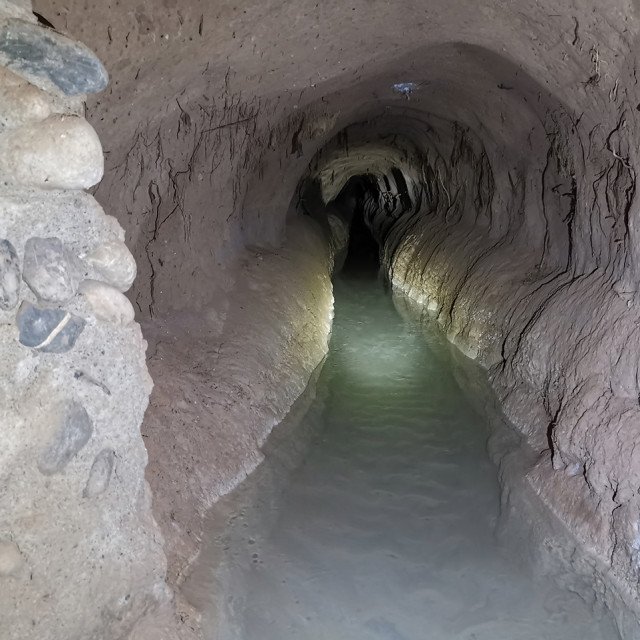Valuing Ancient Water Cultures
The Exhibition and Campaign
Valuing Ancient Water Cultures
Learning from history and involving local communities in managing and monitoring groundwater quality and quantity are prerequisites for enlightened water use that supports the UN’s Sustainable Development Goals.
In conjunction with the UN-Water Summit on Groundwater (Paris, 6-8 December 2022), the Global Network of Water Museums curated an exhibition with eight selected case studies from different parts of the world to illustrate how ancient water cultures can be an inspiring source of innovations for sustainable groundwater management.
Ancient water cultures and management practices are based on holistic knowledge and approaches. They can help to achieve the SDGs in ways that are more effective than those based solely on modern technological ‘fixes’ and increasingly powerful technologies. Shifting from a cultural paradigm of ‘dominion over nature’ to one of ‘ecosystem sustainability’ requires persistence in engagement, training, and education.
However, a commitment to shifting attitudes and behaviors in this way is vitally necessary now to secure humanity’s future and global water security. Society must move on beyond paradigms that consider that water management for development can take place only through energy-intensive, ecosystem-altering major hydraulic infrastructures and technologies that have major ecological footprints and other negative environmental impacts.
Water museums display some of the most outstanding features of water heritage and human knowledge worldwide. They actively promote water heritage of all kinds - whether natural, cultural, tangible, or intangible – linked to the precious, life-giving element of water. Simultaneously, museums also excel in using innovative approaches for reconnecting people and communities to the values associated with water, and far-sighted ancestral practices of coexistence with nature.
This educational perspective is crucial - since multiple water assets have too often been obliterated by corporate consumerist treatments of the resource as simply an unlimited commodity. Museums must be recognized for the role they play in raising awareness about groundwater vulnerability - ‘making the invisible visible’. Through concrete activities, museums show how traditional water knowledge and ancient management practices promote new holistic ideas for future resilience planning.
In this context, the Global Network of Water Museums (WAMU-NET) is active to foster a ‘new culture of water’ through education and knowledge sharing across national borders and sectoral boundaries – and to support cooperation among institutions and individuals to repair our degraded relationship with the most precious element for life.








